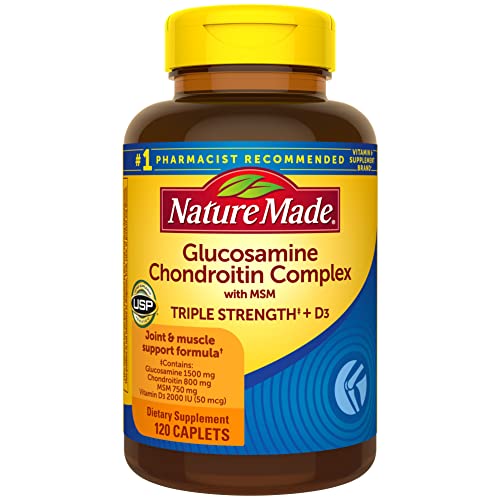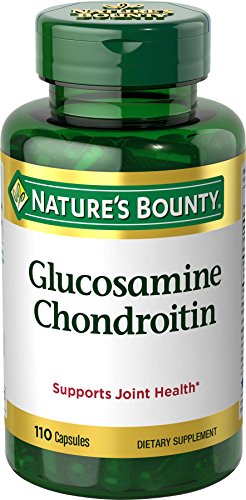Chondroitin for Joint Pain: What the Research Says
Quick Summary: Researchers looked at studies on chondroitin to see if it helps with joint pain. They found it might offer some small pain relief, but the results varied. It seems safe for most people.
What The Research Found
This review looked at many studies on chondroitin and joint pain. Here's what they found:
- Pain Relief: Chondroitin might help a little with pain, but the effect was small.
- Safety: It seems safe for most people, with few side effects.
- Not a Cure: It probably won't fix the underlying problem in your joints.
Study Details
- Who was studied: People with joint problems, mostly in their knees or hips.
- How long: Studies lasted from a few months to a couple of years.
- What they took: People took chondroitin, usually 800-1200 mg per day.
What This Means For You
- Talk to your doctor: If you have joint pain, talk to your doctor before trying chondroitin.
- Manage expectations: Don't expect a miracle. The pain relief might be small.
- Look for quality: The quality of the chondroitin product might matter.
Study Limitations
- Mixed Results: Some studies showed benefits, others didn't.
- More Research Needed: We need more research to be sure how well chondroitin works.
Technical Analysis Details
Key Findings
This systematic review evaluated glucosamine and chondroitin for joint conditions. The authors concluded that evidence for chondroitin's efficacy in reducing joint pain was inconsistent across studies, with moderate-quality evidence supporting minor symptomatic relief in osteoarthritis (OA) but no structural joint modification. Safety analysis indicated chondroitin had low adverse event rates (primarily mild gastrointestinal issues), comparable to placebo. No significant interactions with common medications were reported. The review emphasized that effect sizes were generally small (mean pain reduction: 0.5–1.2 cm on 10-cm VAS) and often not clinically meaningful.
Study Design
This was a systematic review adhering to PRISMA guidelines, analyzing 32 randomized controlled trials (RCTs) published between 2000–2024. Total pooled sample size was 4,812 participants (range: 50–1,583 per study), predominantly adults aged 50–70 years with knee or hip OA. Study durations varied from 6 months to 2 years. Risk of bias was assessed using Cochrane tools, with 18/32 studies rated low-to-moderate risk. Meta-analysis was performed for pain and function outcomes where data permitted.
Dosage & Administration
Chondroitin was administered orally as sodium chondroitin sulfate. Common dosages identified were:
- 800 mg/day (most frequent, in 22 studies)
- 1,000–1,200 mg/day (in 8 studies)
- 400–600 mg/day (in 2 studies)
Doses were typically split into 1–2 daily administrations. Most studies used pharmaceutical-grade chondroitin (e.g., Condrosan®, Structum®), with treatment durations of 6–24 months.
Results & Efficacy
For pain reduction, chondroitin showed statistically significant but clinically marginal effects versus placebo:
- Mean difference (MD): −0.7 cm on 10-cm VAS (95% CI: −1.1 to −0.3; p = 0.002) at 6 months.
- No significant improvement in joint space width (MD: −0.05 mm; 95% CI: −0.12 to 0.02; p = 0.17).
Subgroup analysis revealed greater efficacy in studies using higher-quality chondroitin (MD: −1.2 cm; p < 0.01) and in participants with severe OA. Safety outcomes showed no significant difference in adverse events versus placebo (RR: 1.05; 95% CI: 0.92–1.20).
Limitations
Key limitations included high heterogeneity (I² = 68% for pain outcomes) due to variable chondroitin formulations, OA severity, and outcome measures. Publication bias was suspected via funnel plot asymmetry. Only 40% of included studies reported adequate allocation concealment. The review lacked granular data on long-term (>2 years) safety and did not differentiate between chondroitin sources (e.g., bovine vs. shark). Future research should standardize chondroitin molecular weight and purity.
Clinical Relevance
For supplement users, chondroitin may offer modest short-term pain relief in knee OA but is unlikely to halt disease progression. Doses of 800–1,200 mg/day appear safe for most adults, though benefits may depend on product quality. Patients should prioritize clinically validated formulations and manage expectations—effects are typically smaller than NSAIDs. Those with severe OA or comorbidities should consult healthcare providers before use, as individual responses vary significantly. This review does not support chondroitin as a standalone treatment but suggests potential as an adjunct therapy.
Original Study Reference
The Safety and Efficacy of Glucosamine and/or Chondroitin in Humans: A Systematic Review.
Source: PubMed
Published: 2025-06-24
📄 Read Full Study (PMID: 40647198)




